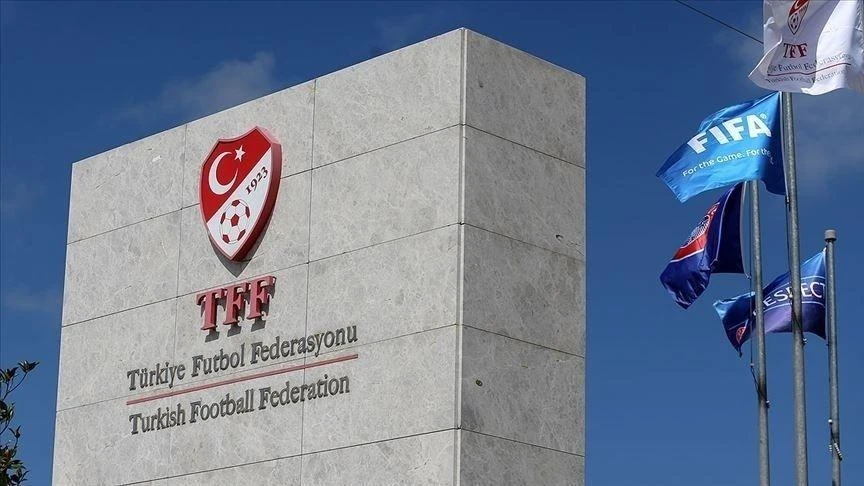
TFF outlines 14 foreign player limit for 2025-2026 Super Lig season
In a move aimed at shaping the future of Turkish football while keeping a balance between domestic talent and international presence, the Turkish Football Federation (TFF) has officially announced a new regulation regarding the number of foreign players allowed per club for the 2025-2026 Super Lig season. This decision, centered on the theme of development and sustainability, outlines a clear path forward for clubs—and a stricter framework for squad building.
The announcement has sparked immediate interest and debate, as teams will now be required to adjust their recruitment strategies and youth development pipelines to meet the foreign player limit rules that will evolve year by year.
New rules for the 2025-2026 Super Lig season: foreign player limit and age conditions
Under the newly unveiled guidelines, clubs competing in the 2025-2026 Super Lig season will be allowed to register a maximum of 14 foreign players on their A team roster. However, the rule is not as straightforward as it seems at first glance. Of the 14 allowed players, only 12 may be of any age. The remaining two must be born on or after January 1, 2003—a clear nod to encouraging investment in younger international talent.
This is a significant policy shift that introduces an age-based filter, and it’s one that clubs will need to plan for carefully. The aim, according to the TFF, is not just to manage the foreign quota, but also to ensure that younger, developing players are given space and opportunities within Turkish football.
Looking further ahead, the 2026-2027 season will take the strategy a step further, requiring at least four of the 14 foreign players to be born on or after January 1, 2004. The gradual tightening of age-based eligibility highlights the TFF’s longer-term vision to create a more youth-centric model, even within the framework of foreign player recruitment.
Squad flexibility with a caveat: what clubs need to consider
The TFF also clarified that clubs are free to use any combination of foreign players within the defined limit, as long as the 14-player cap is not exceeded and the age criteria are satisfied. Importantly, all 14 foreign players must not be eligible to represent the Turkish national team. This means that players with dual nationality or Turkish roots will not count against the foreign quota if they are eligible to play for Turkey.
If a club exceeds the 14-player limit under contract, any additional foreign players cannot be included in the A team list and will be ineligible for official matches. In effect, this places added pressure on club management to streamline their foreign signings and avoid bloated squads with unused resources.
Special exemptions and blue card considerations
There are some nuanced exceptions built into the new regulation. One of the more interesting allowances is the ability for clubs to register an additional foreign player from countries such as Azerbaijan, Kazakhstan, Kyrgyzstan, Uzbekistan, or Turkmenistan, even if that player is not eligible for the Turkish national team. This clause not only reflects Turkey’s close cultural and political ties with these nations, but also provides clubs with an additional avenue to expand their rosters without violating the foreign player limit.
Players holding Turkish citizenship or possessing a blue card—a status granted to individuals of Turkish origin who have renounced their citizenship but still maintain legal ties—can also be included in team lists without affecting the 14-player quota. This gives clubs some added flexibility, particularly when managing players with Turkish heritage who might otherwise count against the foreign cap.
A long-term vision or a short-term hurdle?
While the rules are strict, they are clearly designed with the future in mind. The TFF’s approach reflects a desire to reduce reliance on foreign stars while simultaneously cultivating younger international prospects who might grow into influential figures within the league. More importantly, it also serves as an indirect push for Turkish clubs to improve their youth academies and invest more heavily in local development.
The foreign player limit and the introduction of age restrictions send a clear message: Turkish football must evolve with both discipline and foresight. There are concerns, of course—especially for mid-tier and lower-budget clubs that have traditionally leaned heavily on experienced international players. But there is also opportunity in this moment: for smarter scouting, for bolder youth integration, and for a more sustainable version of Turkish football that finds the right balance between homegrown talent and global flair.
As the 2025-2026 season edges closer, clubs now face the challenge of reshaping their squad dynamics—perhaps not just for next season, but for the next decade. The TFF’s foreign player rule is more than a roster adjustment. It’s a philosophical shift. Whether it delivers the desired results will depend not only on the policy itself, but how well the clubs rise to meet its demands.


































There are no comments yet. Be the first to comment!